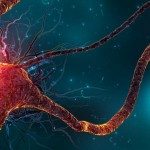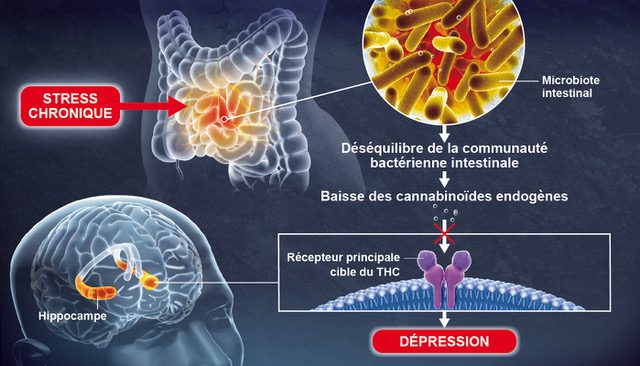This new study describes the potential role of the gut microbiota as a factor triggering depression through altered lipid metabolism. We show, for the first time, that changes in gut microbiota populations, promoted by repeated stress, affect lipid metabolism and, in particular, the production of endocannabinoid (eCBs). Combining behavioral analysis, pharmacology, molecular biology, metagenomics and metabolomics, we demonstrate in this study that the microbiota transfer from stressed donor to healthy recipient mice is sufficient to decrease brain eCB signaling and to promote depressive-like behaviors. Using targeted diet or microbiota complementation, we further confirmed that restoring the eCB signaling in the brain is able to normalize the impact of stressed microbiota on behaviors and we have identified hippocampus as the main target.
Our findings demonstrate the functional importance of the gut-brain axis on mood disorders, and establish a new causal relationship between microbes, metabolism and brain functions that could ultimately lead to depression. We are now launching clinical trials based on the rational of this discovery to treat major depressive disorder.
Source
Effect of gut microbiota on depressive-like behaviors in mice is mediated by the endocannabinoid system, Nature Communications, 11 décembre 2020.











